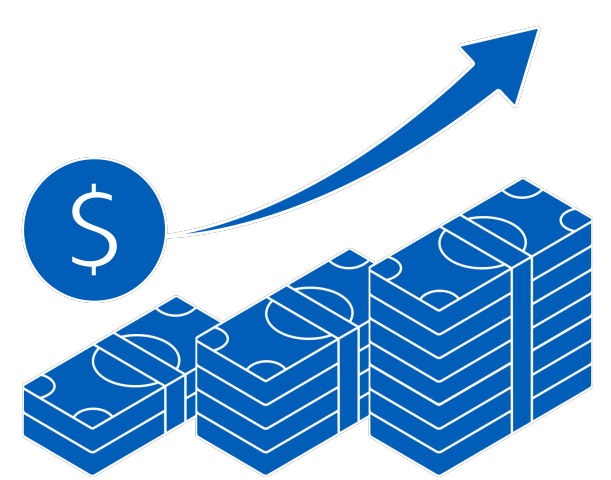You are now reading:
How SMEs can prepare for life beyond COVID-19 – an outlook on global economies
1 of 3



Starting or growing a business? Enjoy more than S$4,000 savings now with essential solutions. T&Cs apply.
Find out more
Your go-to sustainability guide. Get your customised report today by taking the quiz now.
Take the quizyou are in GROUP WHOLESALE BANKING


You are now reading:
How SMEs can prepare for life beyond COVID-19 – an outlook on global economies
Unprecedented government stimulus combined with aggressive central-bank easing should provide enough support for economies to enjoy a second-half rebound, Heng Koon How, Head of Markets Strategy at UOB, told clients at a recent webinar in Singapore.
China's economy may provide a roadmap for the rest of the world, being the first to come out of the national lockdowns that crushed productivity and growth. Its second-quarter GDP exceeded estimates, with the Purchasing Manager's Index (PMI) rebounding to above pre-COVID levels, which is very comforting and encouraging, Heng said.
With China stabilising, the region can benefit from the manufacturing powerhouse's key role in revitalising regional supply chains. The US may have longer to wait, with second-quarter GDP expected to suffer as much as a 35 per cent annualised contraction, Heng added, with the damage to jobs likely to take years to fix.
However, massive government fiscal stimulus combined with the Federal Reserve's (Fed) emergency policies will provide a much needed catalyst for recovery. Flooding the economy with cash has driven down borrowing costs and supported financial assets such as stocks and bonds.
The same may not be true for the US Dollar, as the policy shift puts the multi-year rally on thin ice, Heng said in his presentation.
The US Dollar is likely to weaken now that the Fed has reverted to the aggressive accommodative policies last employed during the Global Financial Crisis (GFC) of 2008-2009.
The pace of Fed rate cuts accelerated this year as the pandemic worsened. The Fed slashed rates by a full percentage point in an emergency meeting in March, to a zero-to-0.25 per cent band that equalled the record low from the GFC.
It also announced Quantitative Easing (QE) in the form of various emergency facilities, again replicating a tactic from the last crisis used to boost liquidity and reflate the economy.
This year, the Fed's balance sheet has already ballooned to more than US$7 trillion, from around US$4 trillion at the start of the year. That's a huge increase, Heng said.
Money (M1) supply is also expanding at an unprecedented pace of 35.9 per cent, which far exceeds similar measures in the rest of the world, according to Heng.
The sheer scale of the Fed's action, having launched nine separate emergency facilities, or "intervention bazookas", to support financial markets, implies a negative backdrop for the US Dollar.
China's yuan has climbed from its lows, in tandem with stronger economic data. The rebound comes despite heightened tension with the US on trade and political issues, suggesting the US dollar has lost some traction.
Where the yuan goes, other Asian currencies may follow, due to China's growing importance in the region, both as a manufacturing hub and a major trading partner.
Malaysia's ringgit has enjoyed a similar recent rebound, although its status as a commodity currency means the price of crude oil will have a significant bearing. OPEC will do its utmost to keep prices stable, meaning business as usual for the ringgit, Heng said.
For Singapore, which has one of the world's most open economies, the negative effects of the pandemic have been far greater, causing the monetary authority to ease policy to one of "zero appreciation" for the Singapore Dollar.
However, this "zero appreciation" is on a trade-weighted basis against a basket of currencies, meaning that should there be broad-based US Dollar weakness, the Singapore Dollar will strengthen in tandem.
Gold should be another winner, supported by the global reflation trade which has lifted it above the key USD 2,000 per ounce level, said Heng, who noted UOB has been positive on the precious metal since last year.
Gold has the added advantage of being a portfolio diversifier to reduce overall risk, he added. However, UOB is not forecasting a big jump because it is a crowded trade, so position size should be limited.
Most recently UOB has raised further the positive forecast for gold, now expecting gold price to trade higher to USD 2,200 / oz by 1Q21.
Equity investors need to stay cautious and careful as the post-COVID world will not be business as usual, throwing out new challenges for companies, especially once the effect of subsidies starts to wear off, said Dharmo Soejanto, Senior Director, UOB Asset Management.
Many economies will enjoy a sharp rebound as pent-up demand resurfaces after national lockdowns and travel restrictions. However, that impetus is likely to fade, causing growth – and therefore earnings – to plateau. We’re likely to be faced with a "90% economy" compared with pre-COVID levels, Soejanto said, as some safety restrictions remain in place.
Picking winning sectors will be important for portfolio management. For example, Healthcare may benefit from a vaccine though the race for a vaccine may produce one winner, but more losers. Airlines are under stress now but as global travel resumes, this may prompt a stronger rally from depressed levels. While SIA currently trades at around 0.6 price-to-book, it has strengthened its balance sheet to withstand the crisis.
Technology should be another sector to benefit as companies need to innovate to prosper. However, it is really the application of technology that will be important, Soejanto said.
There is a wide spectrum of potential outcomes for equity markets, from a bullish scenario of a quick vaccine discovery, to the bearish risk of a larger second wave of infections, reinforcing the need to tread carefully, Soejanto said.
There are encouraging signs for a global economic recovery in the second half. Government and central-bank stimulus should lower borrowing costs that can support businesses and financial markets, though this comes at the cost of undermining the US Dollar.
But major disruptive events, such as a resurgence of outbreaks, also tend to produce higher volatility that can complicate strategic decision-making. UOB’s teams of specialists provide advice and solutions to navigate the uncertainties ahead as conditions change in such unprecedented times. Contact us today for a consultation with our dedicated FX specialists.

20 Nov 2025 • 5 mins read

12 Aug 2025 • 7 mins read

30 May 2025 • 3 mins read

29 Apr 2025 • 3 mins read